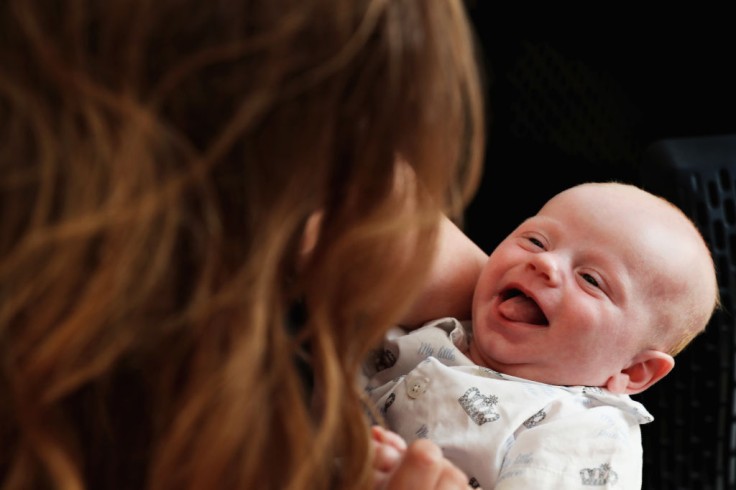
Baby's smiles convey cheerfulness, happiness, contentment, a desire for attention, a sense of bonding, and enjoyment of their surroundings. As they progress from smiling to laughing, the experience becomes even more delightful.
From the first month, the baby begins experimenting with sounds, including cooing, gurgling, and throaty sighs.
Laughter becomes the next amusing step in the journey of communication. Many babies experience their initial hearty laugh around 3 or 4 months, though some may take a bit longer to share their first chuckle.
Here's a guide on when to expect your baby's initial laughter, along with tips on encouraging this important developmental milestone.
When do babies start laughing?
While each child develops at their own pacing, a parent can anticipate the baby's first chuckle or giggle around 3 to 4 months, with full belly laughs possibly emerging around 5 to 6 months.
After mastering smiling, babies recognize that their smiles garner positive reactions from those around them.
As explained by pediatrician Mark Gettleman, MD, babies may add sound effects like cooing to their smiles, progressing to small giggles and eventually hearty laughter.
What makes babies laugh?
Experts believe that humor in babies initially stems from stimuli rather than a developed sense of humor. Initially, physical stimulation, like a bouncing knee, may trigger laughter.
As babies approach the 6-month mark, they begin to find delight in the unexpected, such as funny sounds from toys or playful games like patty-cake and peekaboo.
How to encourage baby's first laugh
Baby's first laughter often starts with parents and caregivers making faces and funny noises to captivate their interest.
Engaging in playful and silly interactions can encourage laughter. Babies learn by imitation, so laughing at something yourself can prompt your baby to chuckle.
The bond between the baby and the adult engaging in playful activities is crucial. Babies are more likely to laugh and play when they feel secure with familiar faces.
Physical activities like blowing raspberries on the belly, tickling feet, or engaging in nonsensical sing-songy conversations can contribute to the joy of laughter.
How to make a baby laugh
Around 4 months, babies begin to laugh at visible and audible stimuli, delighting in nonsense humor.
While a baby's giggles indicate enjoyment, they may not yet fully comprehend why they are laughing or possess a true sense of humor.
Development in this area typically takes place within the next six months as cognitive abilities mature.
When do babies become ticklish?
Newborns aren't typically ticklish, possibly due to underdeveloped sensory processing abilities. It's suggested that as babies realize others are separate entities, they become ticklish. However, this theory cannot be confirmed, and once babies do sense tickling, it often leads to laughter and bonding.
Baby's laughter may be sparked by something as simple as spotting a beloved toy, pet, or, most importantly, you.
While these early laughs are a joy to hear, they also serve as a rewarding experience for the baby, who delights in her own vocalizations and observes your reactions.
Once the baby discovers the joy of laughter, she may start laughing spontaneously because it feels good and introduces a fun new sound.
Each coo and goo contribute to her learning and practicing how to manipulate her mouth and tongue for different sound effects. It's common for babies to laugh or smile in their sleep during an active sleep cycle.
While the content of their dreams remains a mystery, these involuntary movements, including smiles and giggles, are a natural part of the sleep cycle.
Don't be concerned if the baby doesn't laugh immediately, especially during feedings or bedtime. Newborns can be a tough crowd, and some efforts to induce laughter may result in more tears than chuckles.
Every baby has her own pace in developing laughter, just as adults differ in their readiness to laugh. If the baby hasn't shown signs of laughter by 6 months, consult your pediatrician.
Laughing is an early step toward socialization and communication, and with time and stimulation, your baby will soon be waving, pointing, babbling, and playing peekaboo.
Related Article : Playdate Playtime: 15 Energizing Games and Activities for Happy Kids